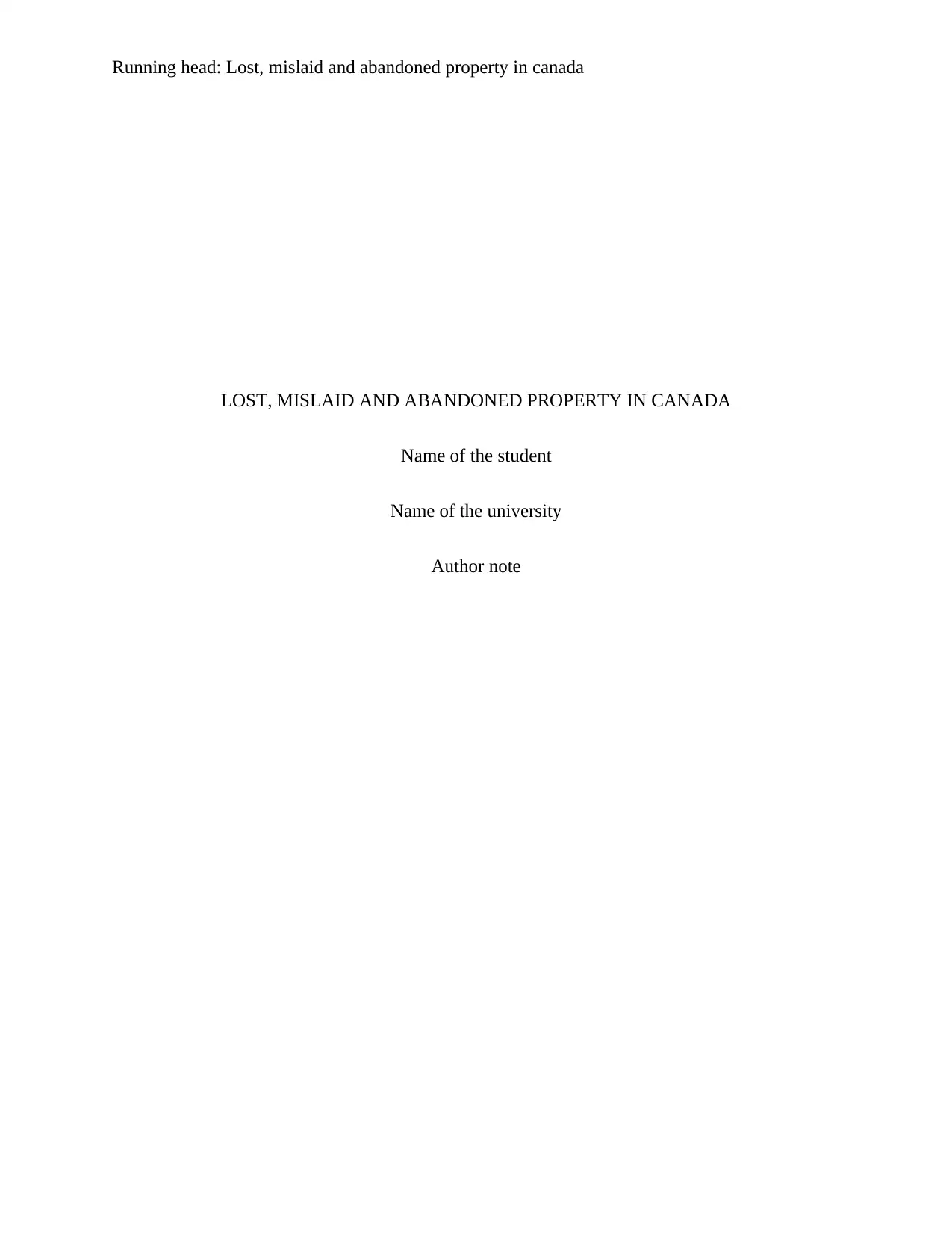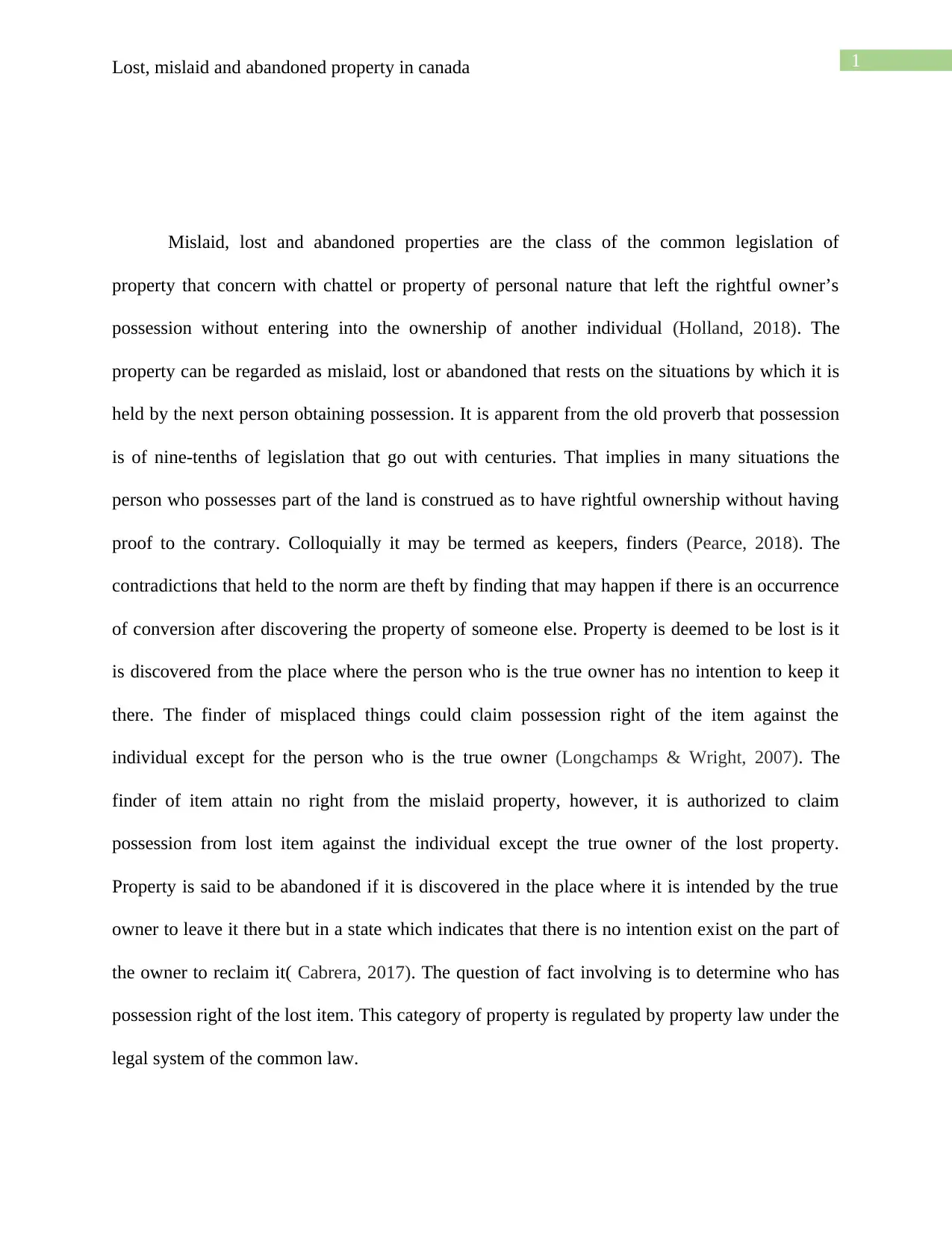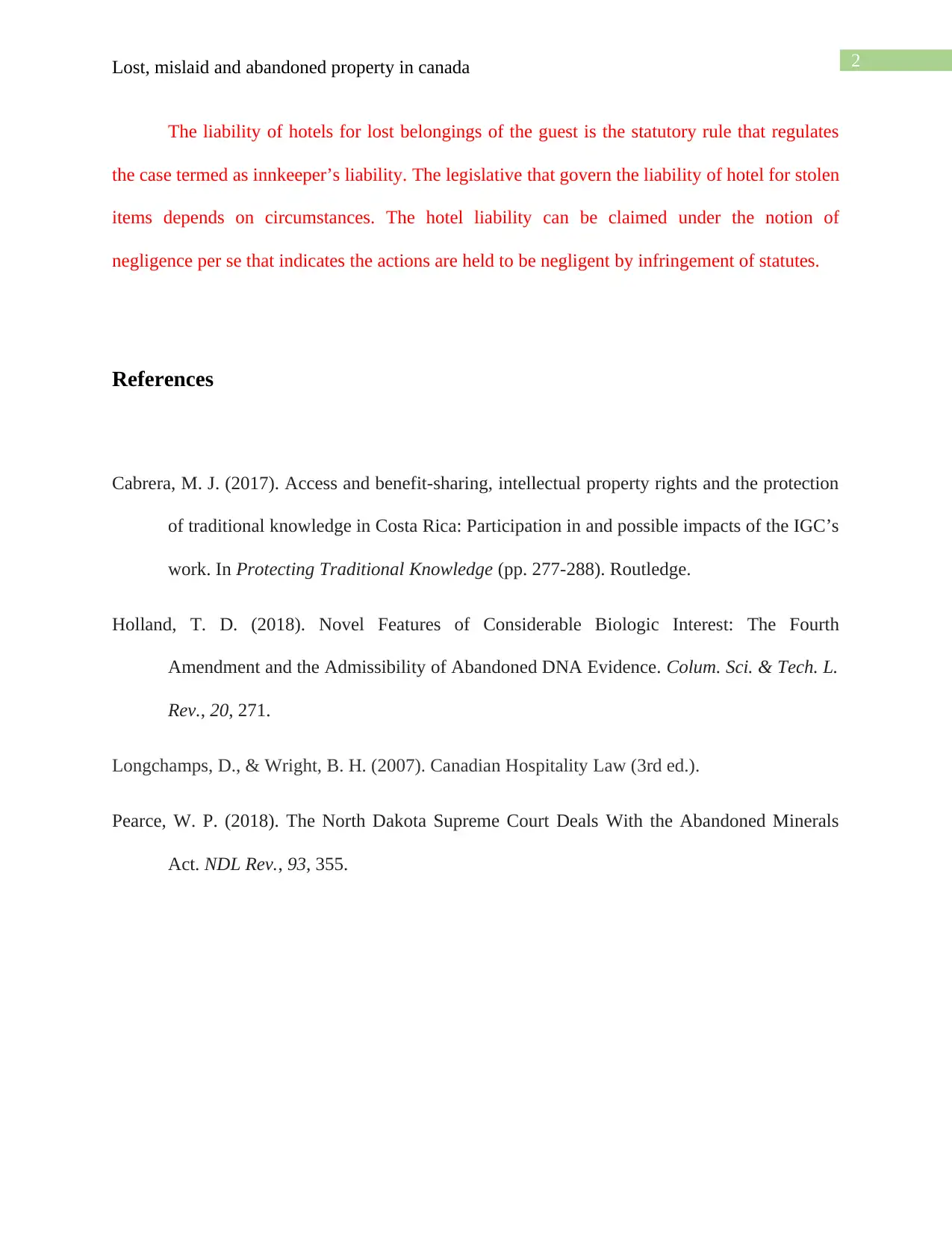Canadian Law: Lost, Mislaid, and Abandoned Property Report
VerifiedAdded on 2022/08/14
|3
|594
|9
Report
AI Summary
This report delves into the intricacies of Canadian property law, specifically focusing on the legal classifications and implications of lost, mislaid, and abandoned property. It begins by defining these terms, differentiating between situations where an item is unintentionally left, intentionally placed but forgotten, or deliberately discarded. The report examines the rights and responsibilities of finders, including the concept of 'finders keepers' and the exceptions to this rule. It analyzes the role of property law in the legal system of the common law. Additionally, it explores the application of these principles in the context of innkeeper's liability, including the statutory rules governing hotels and their responsibilities for lost or stolen belongings of their guests, emphasizing the concept of negligence per se. The report references key legal precedents and scholarly articles to support its analysis.
1 out of 3





![[object Object]](/_next/static/media/star-bottom.7253800d.svg)